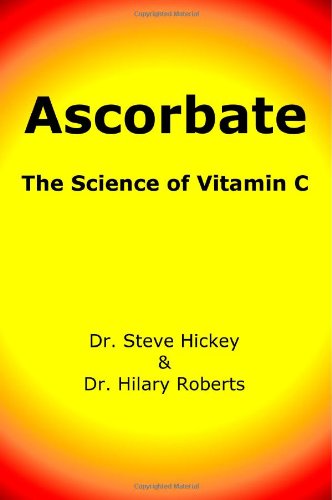Ascorbate: The Science of Vitamin C book
Par malley yolanda le vendredi, juin 17 2016, 01:16 - Lien permanent
Ascorbate: The Science of Vitamin C by Steve Hickey Hilary Roberts


Ascorbate: The Science of Vitamin C Steve Hickey Hilary Roberts ebook
Page: 264
ISBN: 1411607244, 9781411607248
Format: pdf
Publisher:
Vitamin C intake, and serum and leukocyte ascorbate levels were assessed serially over 6 months in 137 outpatients with Crohn's disease. (2004) Ascorbate: the Science of Vitamin C, Lulu press. "Vitamin C is essential in the human body to ensure healthy cell function, but humans have to get vitamin C, or ascorbate, from their diet, as our primate ancestors lost the ability to synthesise it in the body," says Dr William Laing, lead scientist on the study. Although The National Academy of Sciences has established 90 mg/day (for adult males) and 75 mg/day (for adult females) as the Recommended Dietary Allowance (RDA) for vitamin C [9]. Vitamin C, otherwise called ascorbate, has been found to have a link with cancerous tumour growth, according to University of Otago researchers. Vitamin C intake was low in 18% of males and 37% of females. Suppression of Amyloid β A11 Antibody Immunoreactivity by Vitamin C. Researchers at Mount Sinai School of Medicine have shown that Vitamin C actively protects against osteoporosis, the findings are published in the October online edition of PloS ONE. $11.99 per bottle Physicians and scientists have long wondered how scurvy – a simple vitamin deficiency – can cause so much to go wrong in the body. Serving Size: ¼ Teaspoon Servings Per Container: Approximately 105. Vitamin C Crystals (Buffered) 100% Calcium Ascorbate – Non AcidicSize: 4.4 ounces. Scientists at Plant & Food Research are investigating how vitamin C is made in plants and have identified the. Book Feature :: Ascorbate: The Science of Vitamin C. To get your daily dose of vitamin C from just one potato. (2004) Ridiculous Dietary Allowance, Lulu press. Despite the fact that most mammals can synthesize ascorbate (Asc), humans (along with other primates, bats, and guinea pigs) are unable to make vitamin C as a result of a mutation to the gene encoding L-gulono-1,4-lactone oxidase, the last enzyme in the Asc biosynthetic pathway [1].